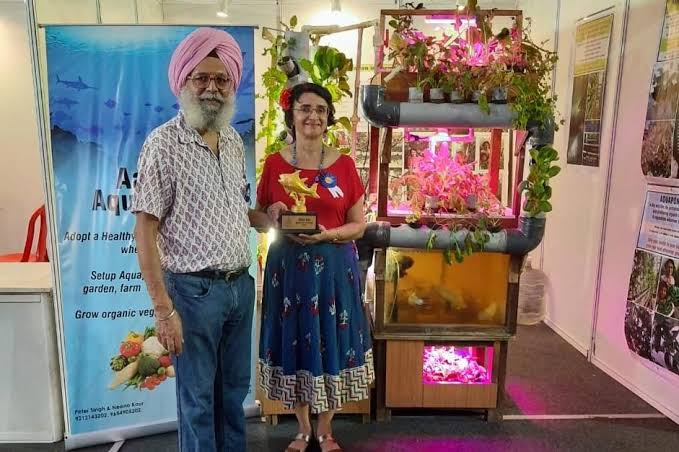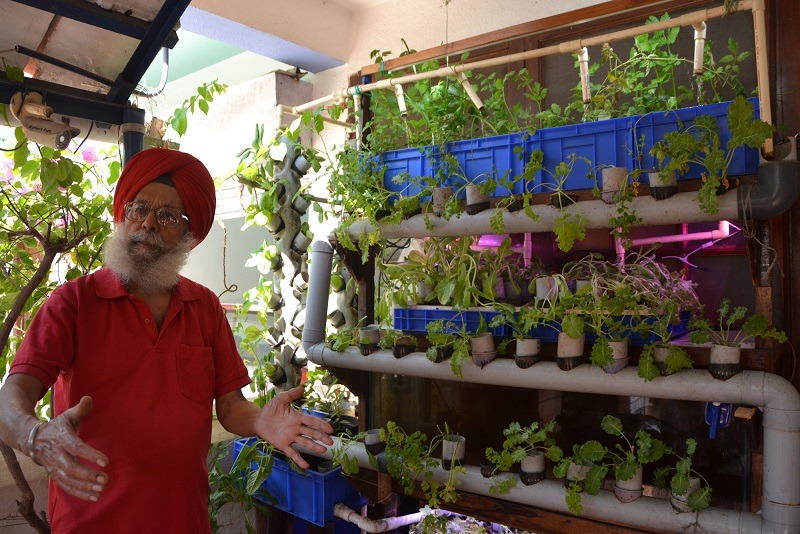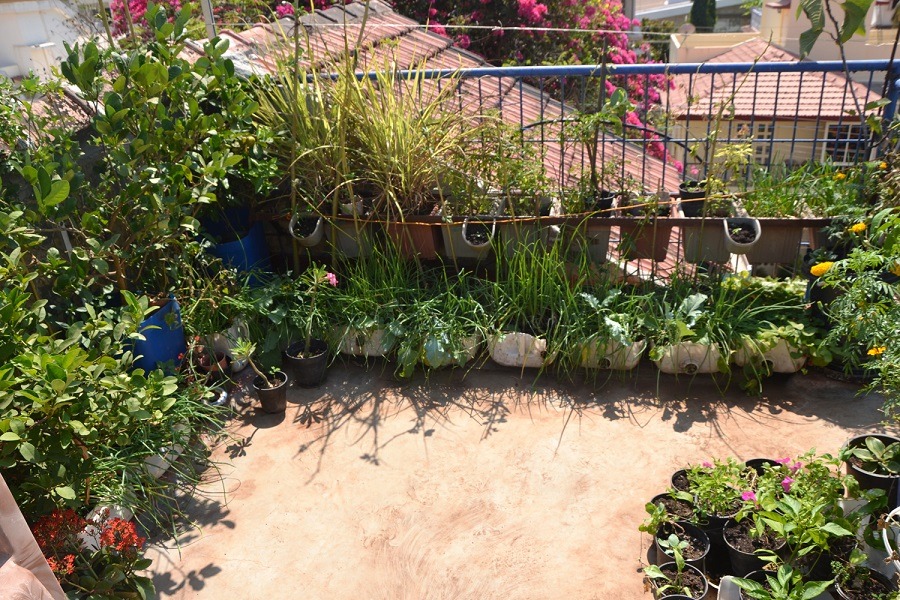Sardar Ji grows vegetables on rooftop without using mud, read details
Trees happen to be our closest relatives. What they exhale, we inhale. What we exhale, they inhale. This transaction is on all the time. Whether you are aware of it or not. Trees provide so many benefits to our everyday lives. They filter clean air, provide fresh drinking water, help curb climate change, and create homes for thousands of species of plants and animals. Planting a Billion Trees can help save the Earth from deforestation.
Goa’s Peter Singh and Neeno Kaur have become the epitome of self-sufficiency. The couple has done something truly great which would motivate people to plant trees. The two have grown more than 3,000 plants in an area of just 185 square meters in their home in Dona Paula. Let’s take a moment to appreciate them.
About 5 years ago, Peter Singh who is 74-years-old and his wife Neeno Kaur, 65, moved to Goa to live the susegad life. However, they were unable to find organic vegetables in Goa. It is to be noted that vegetables in Goa are imported from Belgaum in Karnataka. Since both of them wanted to eat wholesome, organic food, they had to find another solution.

Peter and Neeno have a passion for farming and wanting to live sustainably. Therefore, the couple decided to grow vegetables at home. “Our mission now is to show by example, we want to show everyone that they can grow their own food wherever they live. Even in a small apartment or a granvilla,” the couple said.
The two have enough knowledge about agriculture and have farmed in Punjab before moving to Goa. They even have a sustainable home garden in their house in Delhi. One may wonder why they are farming at home. For them, the answer is simple–they want to lead a happy life and eat organic food. Moreover, both have a background in agriculture.
“I was studying Mathematics at the Delhi University; the idea was to stay in Delhi, but then we thought of moving back to our farms in Jalandhar, Punjab. We worked on different forms of agriculture, in which different fruit and timber trees were planted, we did intercropping in the orchard of oilseeds and pulses, produced seeds for the national seed corporation, had a dairy farm, did beekeeping and even exported the honey,” Singh said.

After extensive research, the couple decided to delve into aquaponics – a combination of aquaculture (raising fish in tanks) and hydroponics (growing plants in water). This eliminated the need for using soil to grow plants. The couple has been using this farming technique since the past four years, and have managed to grow 120 kg of fish every year and 3000 plants (vegetables and fruits).
The couple has a greenhouse and a terrace garden in their home where they grow vegetables and plants. Since they come from an agriculture background, they did not find any difficulty in the process. They compost their kitchen waste and use it for the plants which gives them higher yield. The plants are potted in gravel, 1/3rd of coco peat, and 2/3rd of compost. This way the couple also manages to use their kitchen waste sustainably.
The fish waste goes through a bio-filter and is converted to nitrates and nitrites. A pump takes the water to the highest point and the water comes down by gravity. The same water is filtered through the plants and goes back to the fish. The couple grows various plants like lettuce, kale, and bok choy. They won the first prize for the most innovative stall at the Aqua Goa festival.

According to the couple, this system of farming does not require much water as compared to traditional farming. There is no requirement of watering the plants or weeding and they only need to feed the fish twice a day. The brilliant couple has started selling their organically grown veggies in a small way and also take workshops on farming aquaponically. They also have model units set up at home to show how easy it is to start farming aquaponically.
Peter Singh and Neeno Kaur have become a source of inspiration for all of us. People who attempt to cut trees should at least learn the value of trees. Everyone should adopt this innovative idea to set up sustainable farming practices in their homes and backyards.








